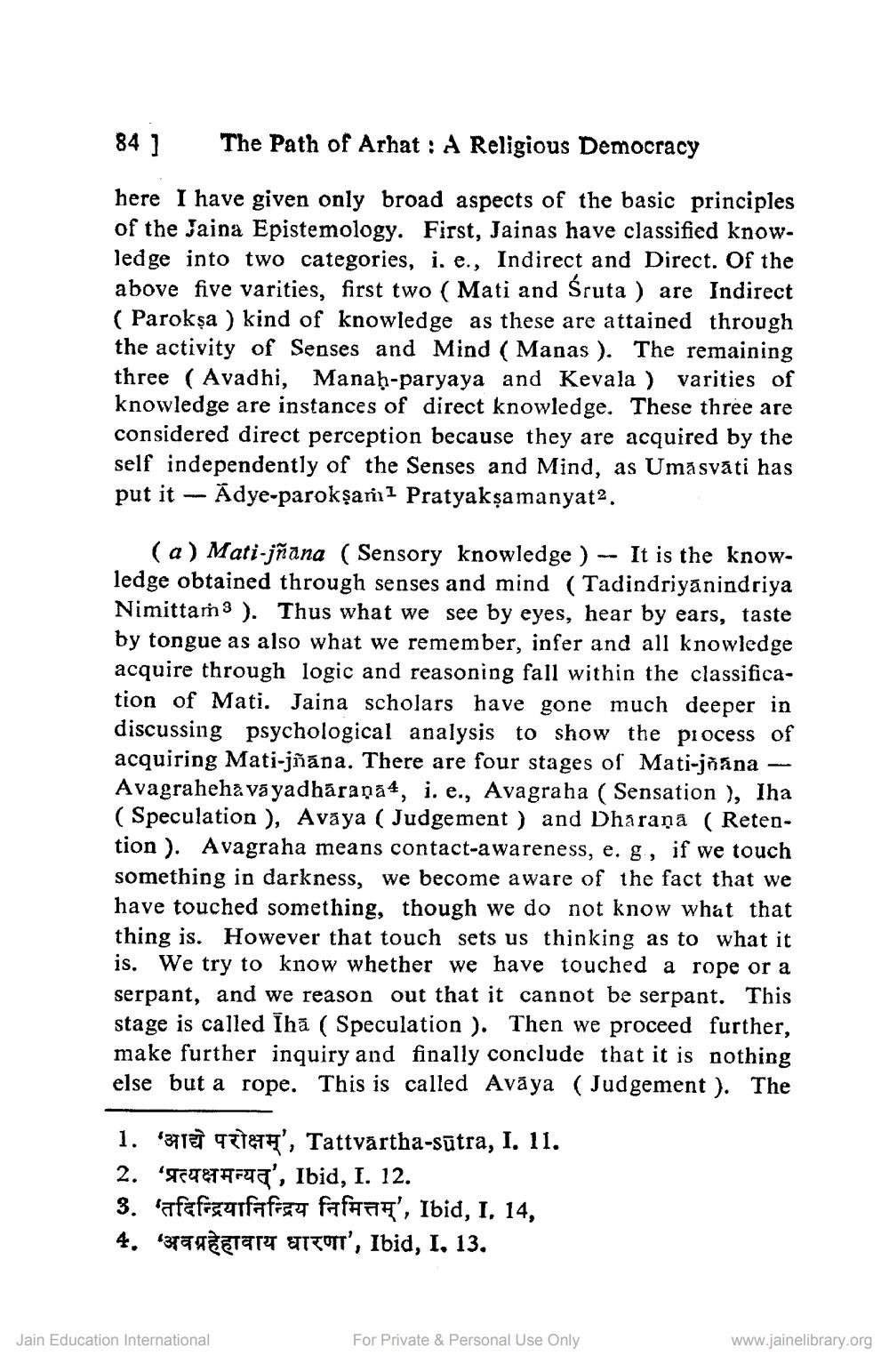________________
84 ]
The Path of Arhat : A Religious Democracy
here I have given only broad aspects of the basic principles of the Jaina Epistemology. First, Jainas have classified knowledge into two categories, i. e., Indirect and Direct. Of the above five varities, first two (Mati and Śruta ) are Indirect ( Parokşa ) kind of knowledge as these are attained through the activity of Senses and Mind (Manas ). The remaining three (Avadhi, Manah-paryaya and Kevala ) varities of knowledge are instances of direct knowledge. These three are considered direct perception because they are acquired by the self independently of the Senses and Mind, as Umásvāti has put it - Adye-parokşarı1 Pratyakşamanyat2.
(a) Mati-jñana ( Sensory knowledge ) - It is the knowledge obtained through senses and mind (Tadindriyanindriya Nimittam 3 ). Thus what we see by eyes, hear by ears, taste by tongue as also what we remember, infer and all knowledge acquire through logic and reasoning fall within the classification of Mati. Jaina scholars have gone much deeper in discussing psychological analysis to show the piocess of acquiring Mati-jñāna. There are four stages of Mati-jõána - Avagraheha vayadhāraṇā4, i. e., Avagraha ( Sensation ), Iha ( Speculation ), Avaya ( Judgement ) and Dharanã (Retention ). Avagraha means contact-awareness, e. g, if we touch
mething in darkness, we become aware of the fact that we have touched something, though we do not know what that thing is. However that touch sets us thinking as to what it is. We try to know whether we have touched a rope or a serpant, and we reason out that it cannot be serpant. This stage is called Thā (Speculation ). Then we proceed further, make further inquiry and finally conclude that it is nothing else but a rope. This is called Avāya (Judgement ). The
1. TEÌ TT1917', Tattvärtha-sūtra, I. 11. 2. "SCHEIRFUT', Ibid, I. 12. 3. affistifafiu fafhan', Ibid, I, 14, 4. T ETET EITTI', Ibid, 1, 13.
Jain Education International
For Private & Personal Use Only
www.jainelibrary.org




